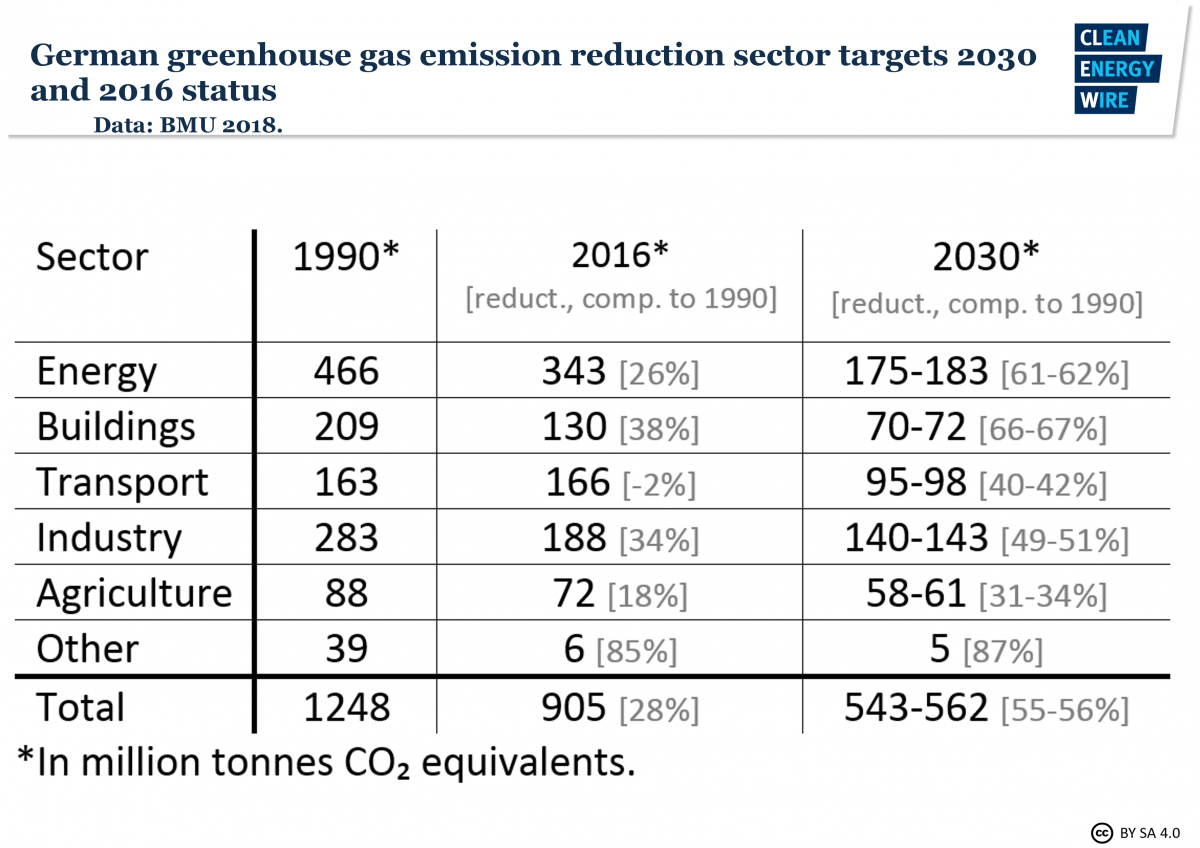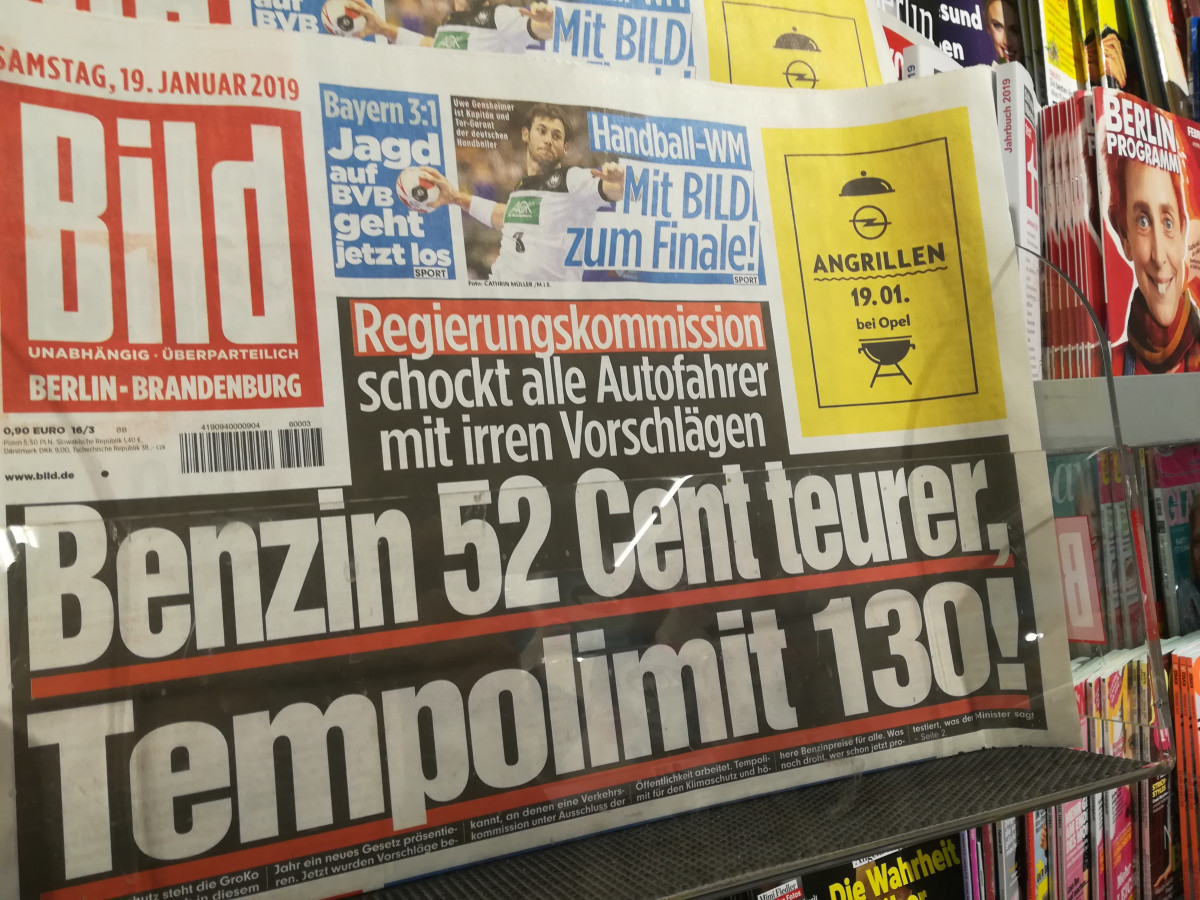Working paper by Germany’s clean mobility commission sparks public outcry
German transport minister Andreas Scheuer (CSU) has rejected initial ideas from the country’s clean mobility commission to set autobahn speed limits and raise taxes on diesel. The proposals, made in an internal working paper and published by several media outlets over the weekend, flew in the face of common sense, Scheuer told news agency dpa.
“We want to inspire the public about the opportunities of future mobility,” Scheuer said. “Demands that provoke anger, bring about burdens or endanger our prosperity will not become reality and I reject them.”
Members of the task force said the proposals were from a December working paper and had been published “without context and in a striking manner”, German media reported.
Germany has been struggling for years to clean up its transport sector. Emissions have remained largely unchanged for decades, with efficiency gains offset by increasing volumes traffic and a trend for heavier vehicles. The coalition government (of the conservative CDU/CSU alliance and Social Democratic Party) launched the advisory panel to cut emissions from transport in line with national climate targets.
After some delay, the expert group is expected to present its proposals by the end of March 2019. The transport ministry will then decide whether or not to adopt them and feed them into the government's much-anticipated Climate Action Law process.
The paper was produced by one of the task force’s six working groups. It includes a speed limit of 130 kilometres per hour on German highways, fuel tax hikes from 2023, scrapping tax breaks for diesel cars, and quotas for electric and hybrid car sales. These measures could deliver half the required greenhouse gas emissions cuts, reports Reuters.
The proposals for a speed limit and higher fuel prices prompted a headline in daily tabloid Bild reading, “Government commission shocks all drivers with mad proposals”. The transport minister’s spokesperson, Wolfgang Ainetter, was quick to Tweet that the working group was merely “toying with ideas”.
Still, some observers have criticised the minister’s reaction. In an opinion piece for Tagesspiegel, Jakob Schlandt accused Scheuer of hypocrisy: “A transport minister convenes a commission that is supposed to work independently and unhindered to solve the […] climate debacle in the transport sector. [Scheuer] sends it on its way with premature praise, prides himself on its implementation and conveniently shifts responsibility away from the government. And then there’s a leak and the minister disputes the task force’s common sense.”
Deputy head of the Greens’ parliamentary group in the Bundestag Oliver Krischer called it “simply indecent” when German ministers implemented commissions to make proposals for the coal exit and a mobility transition, and then give them “a public slap in the face, when they don’t like the proposals”.
This is not the first time the prospect of speed limits on the autobahn or other proposed policies hitting drivers in car-crazy Germany have provoked a backlash. The outcry ahead of federal elections in 1998 over a Green Party proposal to raise the price of fuel to 5 Deutsche Marks (around 2.5 euros) still haunts the party to this day.
Now, events in France, where plans to raise fuel taxes were among the triggers of the “yellow vest” protests, have made German politicians even more wary of policies that might anger drivers.
Over the weekend, 700 participants demonstrated against diesel driving bans in the city of Stuttgart, wrote Stuttgarter Zeitung. The 2015 VW diesel emissions scandal was first and foremost about nitrogen oxide (NOx) emissions, which are harmful to human health, but not to the climate. However, it has also highlighted the discrepancy between passenger cars’ climate-harmful CO₂ laboratory type-approval values and the real-world values, pushing the diesel engine into German energy and climate policy debates. The right-wing populist party Alternative für Deutschland (AfD) reportedly tried to hijack the weekend protest, which was not organised by a political party.
NGO Environmental Action Germany (DUH), which set the ball rolling on diesel bans by suing municipalities over failing to abide by EU air pollution limit values, meanwhile said that membership numbers have soared in recent months. “The current campaign by the car industry and the CDU has brought us more members than ever before,” DUH head Jürgen Resch told the newspaper Augsburger Allgemeine, adding that Chancellor Merkel’s CDU party acted as “the car industry’s political branch.” Resch said more and more people realised that “not the DUH but the carmakers have sold them a dysfunctional exhaust system.”
New CDU party leader Anngegret Kramp-Karrenbauer had said the DUH started a “crusade” against diesel engines. In December, the party decided to assess whether the NGO could be stripped of its ‘charitable’ status and to cut funding from the federal budget. Mirroring the transport commission’s recommendation, the DUH recently said it is considering taking legal steps to enforce the introduction of a comprehensive speed limit on Germany's Autobahn.



